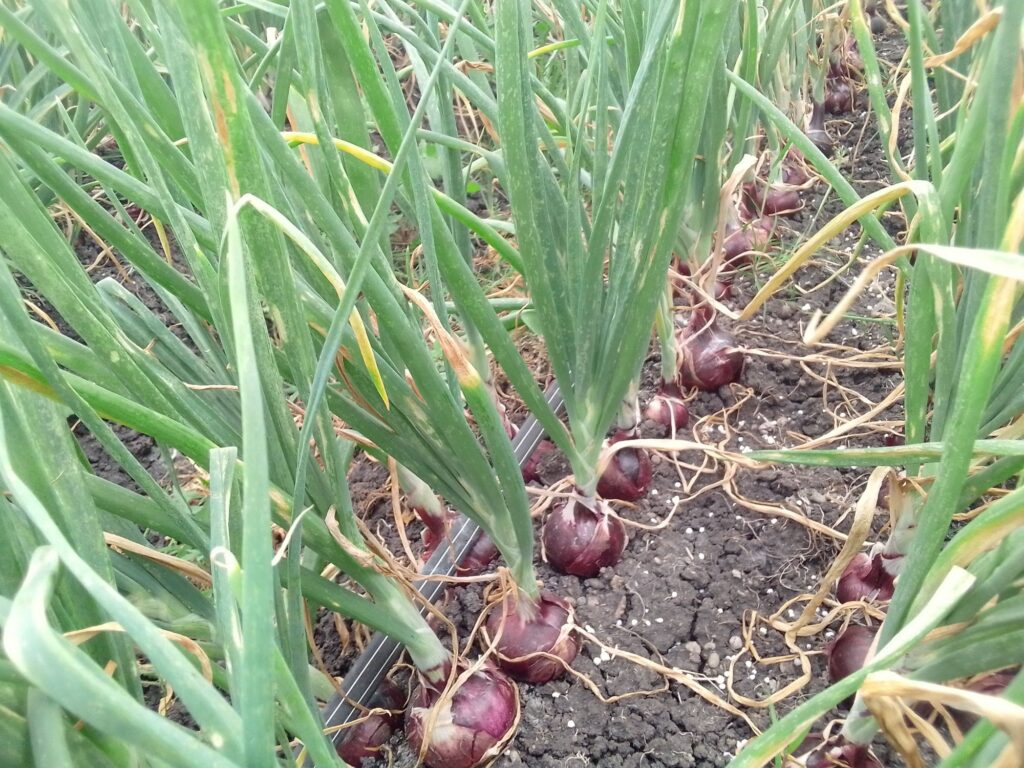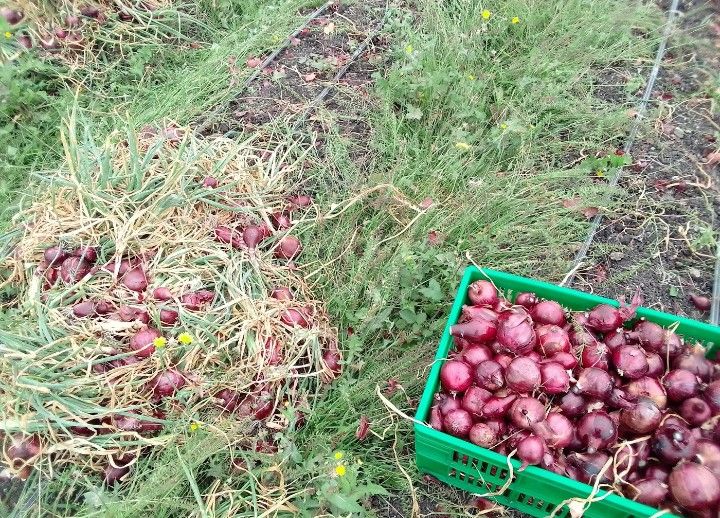
Onion farming in Kenya has been gaining momentum over the years, with more people—especially the youth—venturing into this promising agricultural space. It’s easy to see why: onions are in high demand year-round, and with proper planning, they can bring in decent profits. Counties like Kajiado have seen vast transformations, with once bare savannahs now turned into thriving farmland—onions taking the lion’s share.
I speak from experience. Before relocating to Busia, I lived and farmed in Kajiado for a while. Our farm grew a variety of vegetables—kales, spinach, tomatoes—but onions were a constant. We planted onions twice a year, and they consistently did well. We had a drip irrigation system in place, which was a lifesaver in Kajiado’s dry climate. Onions love controlled watering, and drip irrigation provided just that.
Also read: Onion Farm Management ut like with all farming, we faced challenges:
But like with all farming, we faced challenges:
1. The Unpredictable Rains
While Kajiado is generally dry, when the rains did come, they brought more harm than good. Our well-laid drip systems would be rendered useless overnight as the fields turned into muddy messes. Onions don’t do well in waterlogged soil, so sudden rains during the growing season posed a real threat. Pest and diseases was another challenge brought about by the rains. More resources were needed to manage the onions during this time.

2. The Market Challenge: Competing with Tanzanian
One of the biggest hurdles we encountered wasn’t even on the farm—it was in the market. A significant portion of onions sold in Kenya come from neighboring Tanzania. Thanks to the East African Community (EAC) trade agreements, Tanzanian farmers have free access to the Kenyan market and vice versa. And the Tanzanian farmers take full advantage, often flooding our markets with large, cheaper supplies of onions.
The result of this is local farmers like us who end up selling at throwaway prices if our harvests hit the market at the same time as theirs. The onion prices, the moment the Tanzanian market would go as low as 30 Kenyan shillings per kilo for farmers. But with good timing, before the Tanzanian onions, only desperate farmers with poor quality produce would accept anything lower than 50 shillings.
Timing, we realized, was everything.
So, When is the Best Time to Plant Onions in Kenya?
After some seasons of trial and error, and closely monitoring market trends, we learned that the best time to plant onions in Kenya is just after the short rains, around December to January, or after the long rains, around June to July.
Here’s why:
Tanzanian onions typically flood the Kenyan market between March–May and again around September–October. These are the months you want to avoid taking your harvest to market.
If you plant in January, your onions will be ready by May–June, just before the Tanzanian onions arrive in bulk.
A July planting means your harvest comes around November–December, a time when local supply is lower and demand is high, especially with the festive season. By aligning your planting schedule to avoid these Tanzanian influxes, you increase your chances of getting better prices for your onions.
Final Thoughts
Onion farming is rewarding but requires more than just soil and seeds. It demands planning, especially when it comes to market timing. For those of us growing onions in Kenya, avoiding the Tanzanian glut is critical. It’s not about competing with them—it’s about being smart with our timing to reap the maximum benefit from our onions.
If you’re just getting started with onion farming or considering your next planting season, take a moment to study the market patterns. Timing your planting right could make the difference between a profitable harvest and a disappointing one.
Happy farming—and may your onions always fetch the best price!

Disclosure: This banner contains an affiliate link. I may earn a commission if you purchase through it, at no extra cost to you.
